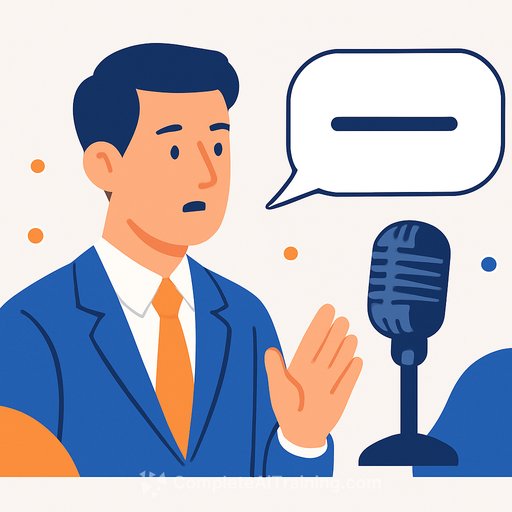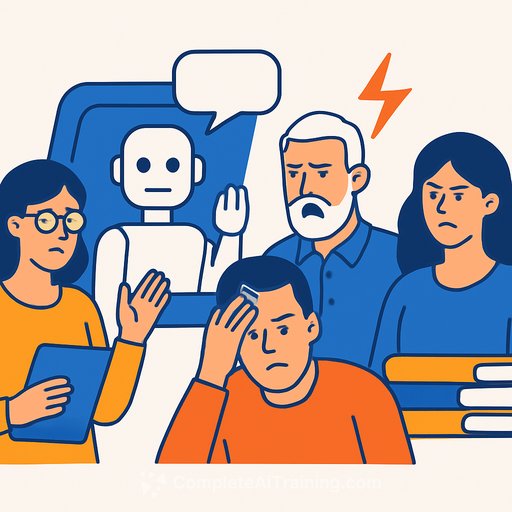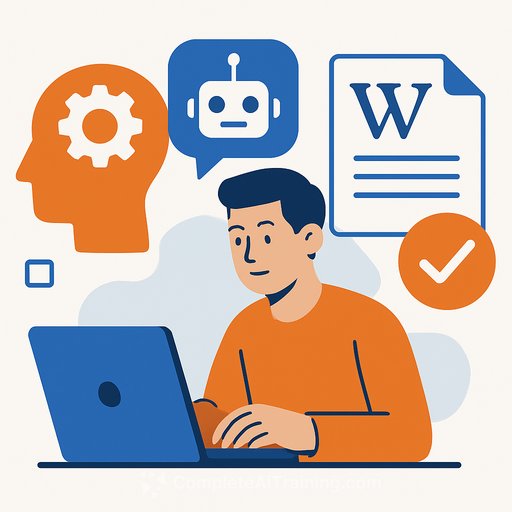AI can kickstart creativity, but big-name authors still lead, says Bloomsbury CEO
AI is creeping into every creative workflow - and that's good news for writers who want momentum. Bloomsbury founder and chief executive Nigel Newton believes AI can help more people start and keep going, especially through blocks.
"AI gets them going and writes the first paragraph or first chapter and gets them back in the zone." He also made it clear: it won't replace established authors. Readers still pick trusted names when they're about to spend hours with a book.
What this means for working writers
- Use AI as a warm-up, not a ghostwriter. Get a first paragraph, then rewrite it in your voice.
- Outline faster. Ask for a beat sheet, then refine the structure yourself.
- Test ideas quickly. Generate five hooks, pick one, and commit to a draft today.
- Keep your fingerprints on every page. Readers buy the voice, not the tool.
Guardrails that keep your work credible
- Don't paste entire unpublished manuscripts into public tools.
- Fact-check names, dates, quotes, and niche details.
- Mark AI-generated placeholders so you don't mistake filler for finished prose.
Brand still wins
Newton's point was blunt: readers turn to authors they trust. People want authority and reliability in a market where low-effort content is easy to churn out. Your edge is consistent quality and a recognizable voice over time.
Sales signals from Bloomsbury
Hits still move the needle. Sarah J. Maas continues to be a phenomenon for Bloomsbury, and "Harry Potter" is still selling 28 years after the first book. The publisher reported £160 million in sales for the first half of the year, slightly below £180 million in the same period last year.
Translation for your strategy: series matter, repeatable worlds matter, and community around a franchise compounds.
Why physical books are having a moment
Gen Z is buying print again. Social platforms like TikTok have pushed series such as "A Court of Thorns and Roses" into fresh cycles of discovery, and the bookshelf has become part of identity. If you write series, think about covers, collectability, and shelf presence - not just the ebook.
Curious about the trend? See an overview of BookTok or browse Bloomsbury.
Quick prompts to beat writer's block
- "Write a messy first paragraph for a [genre] scene where [character] wants [goal] but [obstacle]. Keep it gritty."
- "List 10 scene ideas that force my protagonist to make harder choices about [theme]."
- "Summarize my chapter in 5 beats, then give me a sharper midpoint twist."
- "Offer 3 tones for this scene: tender, terse, wry. One sentence sample for each."
- "Suggest stakes that escalate without adding new characters or locations."
- "Give me a final line that teases the next chapter without a cliffhanger."
- "Rewrite this paragraph with shorter sentences and stronger verbs."
Keep the tool in its place
AI is great at momentum and options. You're responsible for judgment, taste, and the last pass that makes it yours. That's what readers buy - and that's what endures.
Helpful resources for writers using AI
- AI tools for copywriting - curated options to speed up drafts without losing your voice.
- Latest AI courses - keep your skills sharp and your workflow efficient.
Your membership also unlocks:






